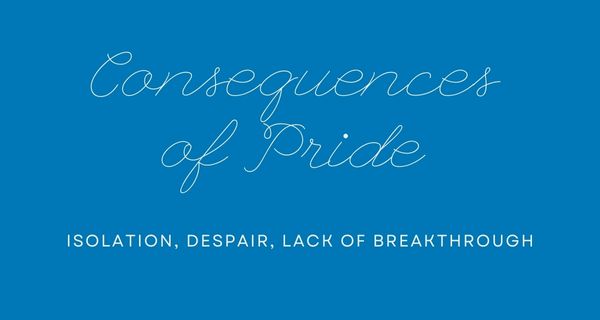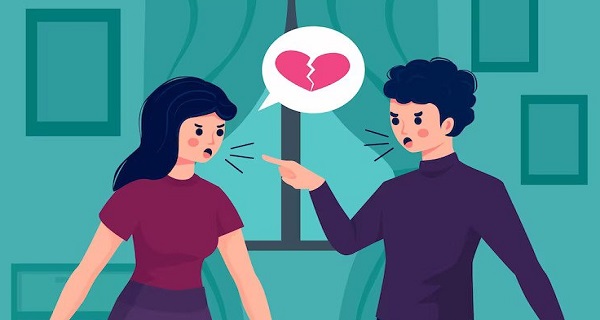The Danger of Prejudice: A Morality Story of Discrimination and Hatred
-
Table of Contents
- Introduction
- The Impact of Prejudice on Society: How Discrimination and Hatred Can Lead to Social Inequality
- The Role of Education in Combating Prejudice: How Schools Can Help Create a More Inclusive Environment
- The Power of Language: How Words Can Fuel Prejudice and Discrimination
- The Consequences of Prejudice: How Discrimination and Hatred Can Lead to Violence and Oppression
- The Need for Empathy: How Understanding Others Can Help Combat Prejudice and Discrimination
- Conclusion
“Uncover the truth behind prejudice: a powerful story of how discrimination and hatred can lead to devastating consequences.”
Introduction
The Danger of Prejudice: A Morality Story of Discrimination and Hatred is a powerful story about the dangers of prejudice and the consequences of discrimination. It follows the story of a young girl, Sarah, who is the victim of prejudice and hatred due to her race. Through Sarah’s story, readers are exposed to the devastating effects of prejudice and discrimination, and the importance of understanding and accepting differences. The story also serves as a reminder of the power of love and acceptance, and how it can help to overcome prejudice and hatred.
The Impact of Prejudice on Society: How Discrimination and Hatred Can Lead to Social Inequality
Prejudice is a powerful force that can have a devastating impact on society. It can lead to discrimination, hatred, and social inequality. Prejudice is based on unfounded beliefs and stereotypes that can be deeply rooted in our culture and passed down from generation to generation.
When prejudice is allowed to take hold, it can lead to a wide range of negative consequences. People who are discriminated against may be denied access to education, employment, housing, and other basic rights. They may be subjected to verbal and physical abuse, and may even be denied basic human dignity.
The effects of prejudice can be far-reaching. It can lead to a lack of trust and understanding between different groups of people, and can create an atmosphere of fear and hostility. This can lead to social unrest and even violence.
Prejudice can also lead to economic inequality. People who are discriminated against may not have access to the same opportunities as those who are not. This can lead to a cycle of poverty and inequality that can be difficult to break.
The only way to combat prejudice is to recognize it and take action. We must challenge our own beliefs and assumptions, and strive to create a more inclusive and equitable society. We must also work to educate others about the dangers of prejudice and the importance of treating everyone with respect and dignity.
Prejudice is a powerful force that can have a devastating impact on society. But by recognizing it and taking action, we can create a more just and equitable world for everyone.
The Role of Education in Combating Prejudice: How Schools Can Help Create a More Inclusive Environment

Education is a powerful tool for combating prejudice and creating a more inclusive environment. Schools have a unique opportunity to shape the minds of young people and help them develop a sense of empathy and understanding for those who are different from them. By teaching students about the history of prejudice and discrimination, and by providing them with the skills to recognize and challenge it, schools can help create a more inclusive environment.
One way schools can help combat prejudice is by teaching students about the history of discrimination and its effects on different groups of people. By understanding the past, students can gain a better understanding of the present and how it has been shaped by prejudice. Schools can also provide students with the tools to recognize and challenge prejudice in their own lives. This could include teaching them about the power of language, how to recognize and respond to microaggressions, and how to be an ally to those who are different from them.
Schools can also create a more inclusive environment by providing students with opportunities to interact with people from different backgrounds. This could include hosting events that bring together students from different backgrounds, or providing students with the opportunity to learn about different cultures and religions. By providing students with these experiences, schools can help them develop a greater understanding and appreciation for those who are different from them.
Finally, schools can help create a more inclusive environment by providing students with the resources they need to succeed. This could include providing students with access to mental health services, offering support for students who are struggling academically, and providing resources for students who are facing discrimination. By providing students with these resources, schools can help ensure that all students have the opportunity to reach their full potential.
Education is a powerful tool for combating prejudice and creating a more inclusive environment. By teaching students about the history of discrimination, providing them with the tools to recognize and challenge prejudice, and offering them the resources they need to succeed, schools can help create a more inclusive environment and foster a sense of understanding and empathy among their students.
The Power of Language: How Words Can Fuel Prejudice and Discrimination
Language has the power to shape our thoughts, beliefs, and attitudes. It can be used to fuel prejudice and discrimination, or to promote understanding and acceptance.
When we use language to describe people in a negative way, it can lead to negative stereotypes and assumptions. For example, using words like “illegal” or “illegal immigrant” to describe people who have come to a country without proper documentation can lead to the assumption that all immigrants are criminals. This type of language can lead to discrimination and prejudice against immigrants.
Similarly, using language that is derogatory or offensive to describe certain groups of people can lead to discrimination and prejudice. For example, using words like “retarded” or “lazy” to describe people with disabilities can lead to the assumption that all people with disabilities are incapable or unproductive. This type of language can lead to discrimination and prejudice against people with disabilities.
On the other hand, language can also be used to promote understanding and acceptance. Using language that is respectful and inclusive can help to create a more positive and accepting environment. For example, using words like “undocumented” or “person with a disability” can help to create a more positive and accepting attitude towards these groups of people.
The power of language should not be underestimated. It can be used to fuel prejudice and discrimination, or to promote understanding and acceptance. By using language that is respectful and inclusive, we can create a more positive and accepting environment for everyone.
The Consequences of Prejudice: How Discrimination and Hatred Can Lead to Violence and Oppression
Prejudice is a dangerous thing. It can lead to discrimination, hatred, and ultimately, violence and oppression. It is a sad truth that prejudice has been a part of our world for centuries, and it continues to be a problem today.
When people are prejudiced against others, they often treat them differently. They may be denied access to certain places, jobs, or services. They may be subjected to verbal or physical abuse. This kind of discrimination can lead to feelings of anger, frustration, and even hatred.
When hatred is allowed to fester, it can lead to violence. People may be attacked or even killed because of their race, religion, or other characteristics. This kind of violence can lead to further oppression and suffering.
The consequences of prejudice are far-reaching. It can lead to a lack of trust and understanding between different groups of people. It can also lead to a lack of respect for human rights and dignity.
Prejudice is a serious problem that needs to be addressed. We must work together to create a world where everyone is treated with respect and dignity. We must strive to create a world where everyone is free to express their beliefs and opinions without fear of discrimination or violence.
It is up to us to make sure that prejudice does not lead to violence and oppression. We must stand up for what is right and work together to create a world where everyone is treated with respect and kindness.
The Need for Empathy: How Understanding Others Can Help Combat Prejudice and Discrimination
We all have the capacity to be empathetic. To be able to understand and relate to the feelings and experiences of others is a powerful tool that can help us combat prejudice and discrimination.
Empathy is the ability to put ourselves in someone else’s shoes and to understand their perspective. It is the ability to recognize and share the feelings of another person. It is a powerful tool that can help us to better understand and appreciate the differences between us.
When we are able to empathize with someone, we can better understand their struggles and their experiences. We can recognize the challenges they face and the obstacles they must overcome. We can also recognize the prejudices and discrimination they may face.
By understanding the experiences of others, we can begin to recognize our own prejudices and biases. We can begin to see how our own beliefs and attitudes may be contributing to the discrimination and prejudice that exists in our society.
Empathy can also help us to recognize the humanity in others. We can begin to see the person behind the label or the stereotype. We can begin to recognize the individual and their unique experiences and perspectives.
Empathy can help us to recognize our shared humanity. We can begin to see that we are all connected and that we all have the capacity to be compassionate and understanding.
Empathy can help us to combat prejudice and discrimination. It can help us to recognize our own biases and to challenge our own beliefs. It can help us to recognize the humanity in others and to treat them with respect and understanding.
Empathy is a powerful tool that can help us to create a more just and equitable society. It can help us to recognize our shared humanity and to create a world where everyone is respected and valued.
Conclusion
The Danger of Prejudice: A Morality Story of Discrimination and Hatred is a powerful reminder of the dangers of prejudice and discrimination. It shows us that prejudice and discrimination can lead to hatred and violence, and that it is important to recognize and challenge these attitudes in order to create a more just and equitable society. Prejudice and discrimination can have devastating consequences, and it is up to us to work together to create a world where everyone is treated with respect and dignity.
Related Posts
-
 The Consequences of Pride: A Morality Story of Arrogance and Isolation
No Comments | Feb 25, 2023
The Consequences of Pride: A Morality Story of Arrogance and Isolation
No Comments | Feb 25, 2023 -
 The Danger of Disrespect in Romantic Relationships: A Cautionary Tale
No Comments | Feb 25, 2023
The Danger of Disrespect in Romantic Relationships: A Cautionary Tale
No Comments | Feb 25, 2023 -
 The Power of Patience: A Morality Story of Endurance and Understanding
No Comments | Feb 25, 2023
The Power of Patience: A Morality Story of Endurance and Understanding
No Comments | Feb 25, 2023 -
 The Beauty of Generosity: A Morality Story of Giving and Sharing
No Comments | Feb 25, 2023
The Beauty of Generosity: A Morality Story of Giving and Sharing
No Comments | Feb 25, 2023
